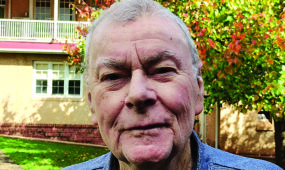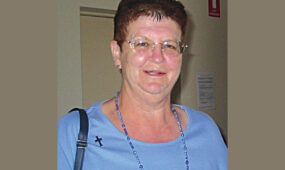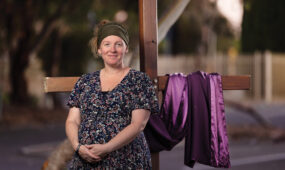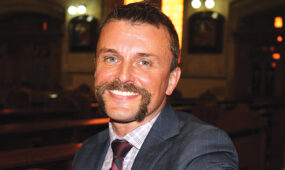Helping others find the light
People
Addicted to drugs and alcohol, suffering stress, anxiety and depression, Craig says he was in a very dark place and without hope – until two words helped turn his life around.
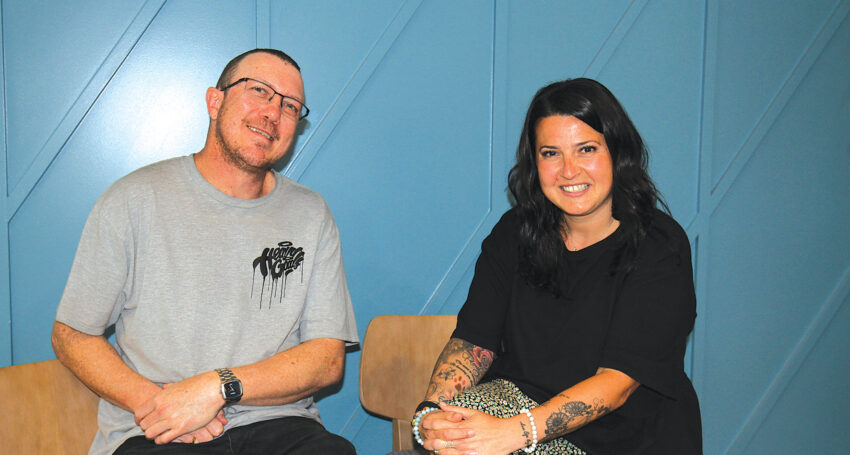
Desperate to change but not knowing how, it was nearly a decade ago when Craig went along to a Narcotics Anonymous meeting in Adelaide. There he met a “guy who was kind to me” and who was happy to listen to his story – one that he had told countless times to well-meaning and well-intentioned counsellors, therapists and doctors, but with no real positive outcome.
The now 45 year old recalled how he shared details of the destructive behaviours that had controlled his life for so long, how he felt powerless and didn’t know what to do to stop his downward spiral.
Advertisement
“And he said, ‘me too’ – and those two words helped change my life,” he said. “Suddenly I felt heard for the first time. I felt like my experience had been validated and he didn’t once tell me I was wrong or I was bad or that I shouldn’t have done what I did. Instead he said, ‘I understand, I know how you feel, I know what it’s like’.
“And he showed me what he did (to change) and I followed his lead.”
Reflecting on that encounter Craig said sharing his darkest moments with this man – who became his sponsor and close friend – was the catalyst that propelled him towards another round of detox. It sparked a “little bit of optimism”, a feeling that his life could get better and he had someone prepared to walk alongside him on his journey back.
“Before that I was so sick and tired, so desperate and alone and in a really dark place,” he said.
“Addiction was a big part of my story and that led me to do things that I am not proud of and put me in situations that caused a lot of harm to me and probably other people.
“I was a drug addict in Victoria and through that I ended up in prison. When I got out of prison I came to Adelaide and did rehab in 2000.”
He recalled how his plan was to finish rehab, head back to Victoria and “pick up pretty much where I left off”.
“I did not know how to do life without drugs – or want to. There were times I didn’t think I would get out. But something, maybe it was God, kept me alive.”
With his demons put aside, about five years ago Craig realised that sharing his own lived experience could help others who were struggling and began a role as a peer worker. He likens the work to “joining someone in the darkness who doesn’t have a torch, who doesn’t know where the light switch is…and I’ve been there before and I know where the light switch is”.
Advertisement
“It’s joining people in the dark spaces where people feel isolated and alone and desperate,” he explained.
“I’m now working in the mental health field and it’s a different, challenging space but it’s a really wonderful space.
“I hope I am planting seeds of hope. People are in such dark places they feel hopeless and I say all the time, I am here with you, meet me halfway and I’ll walk with you.”
To complement his work Craig is currently undertaking Certificate IV in Mental Health Peer Work with registered training organisation Centacare Catholic Family Services.
While admitting the study was difficult at times, he said Centacare’s trainers were “so supportive, encouraging, motivating and inspirational” and he was committed to completing his certification.
Manager of Centacare’s Training and Education Services, Lana Dulic, said the Mental Health Peer Work course was helping to “professionalise” the workforce and establish a set of standards.
“Peer work is a very intentional discipline, it’s using your lived experience to support others,” she said.
“People are realising how important this work is, so the demand for peer workers is growing. We have students from all different walks of life, who have lived experience in mental distress, drugs and alcohol use, domestic and family violence and homelessness.
“Being with students in this class is so powerful…they are incredible human beings with incredible stories of resilience and humanity, and there are some vital learnings for us all in that.”
For more information about studying the CHC43515 Certificate IV in Mental Health Peer Work with Centacare’s RTO (provider number 1004) contact rtoenrolment@centacare.org.au



